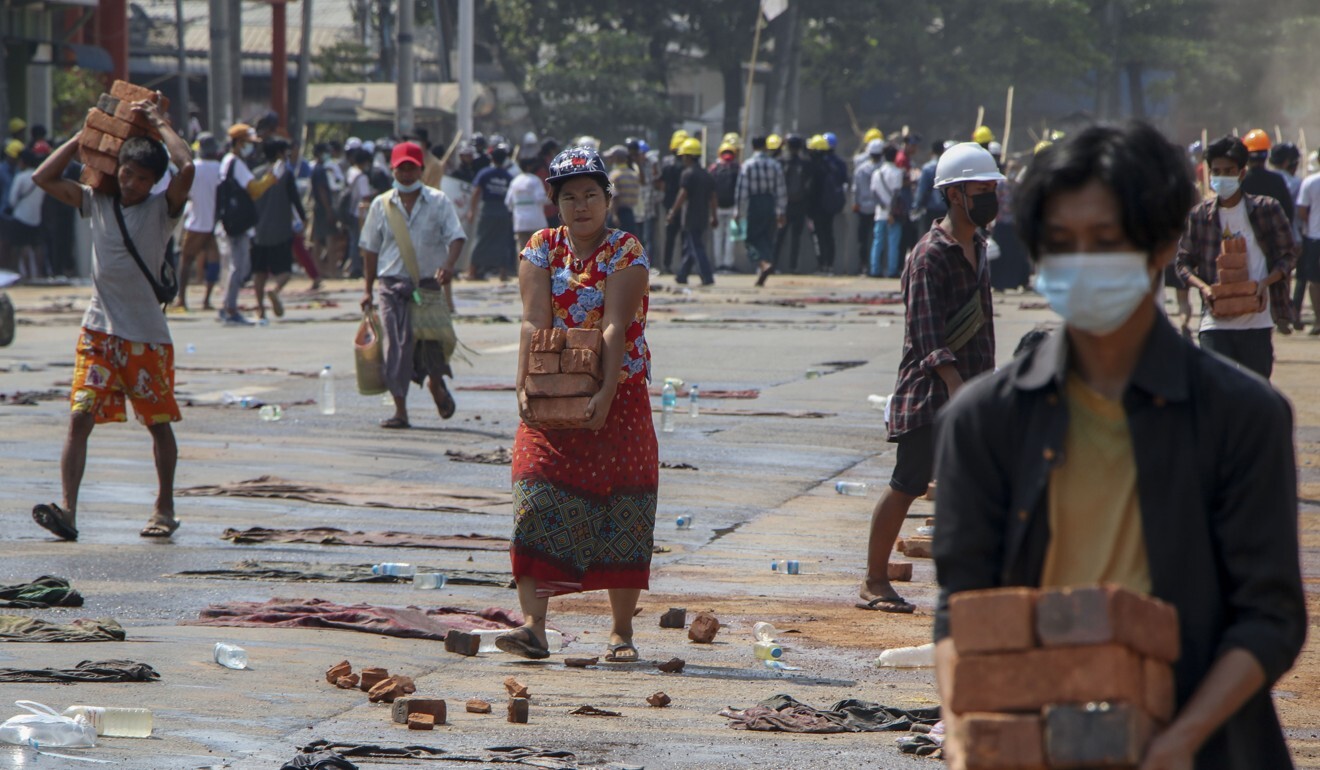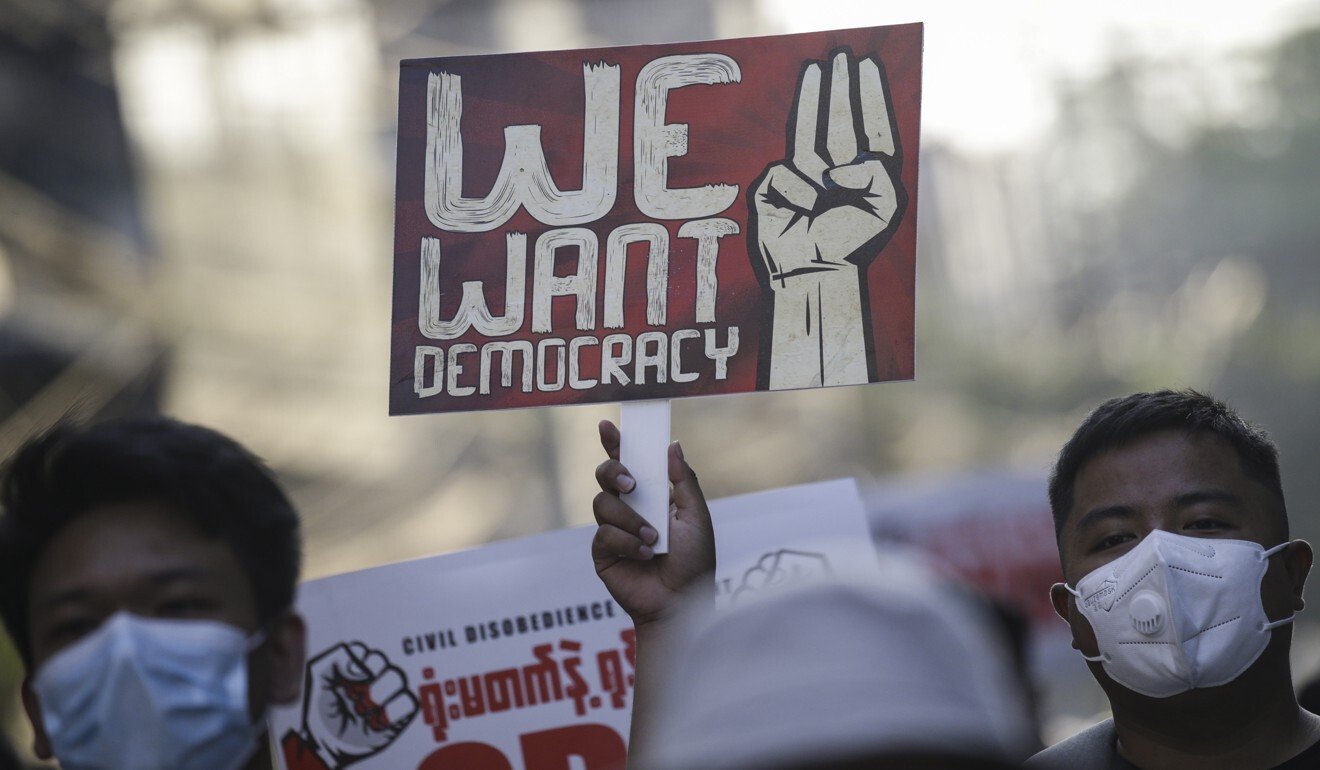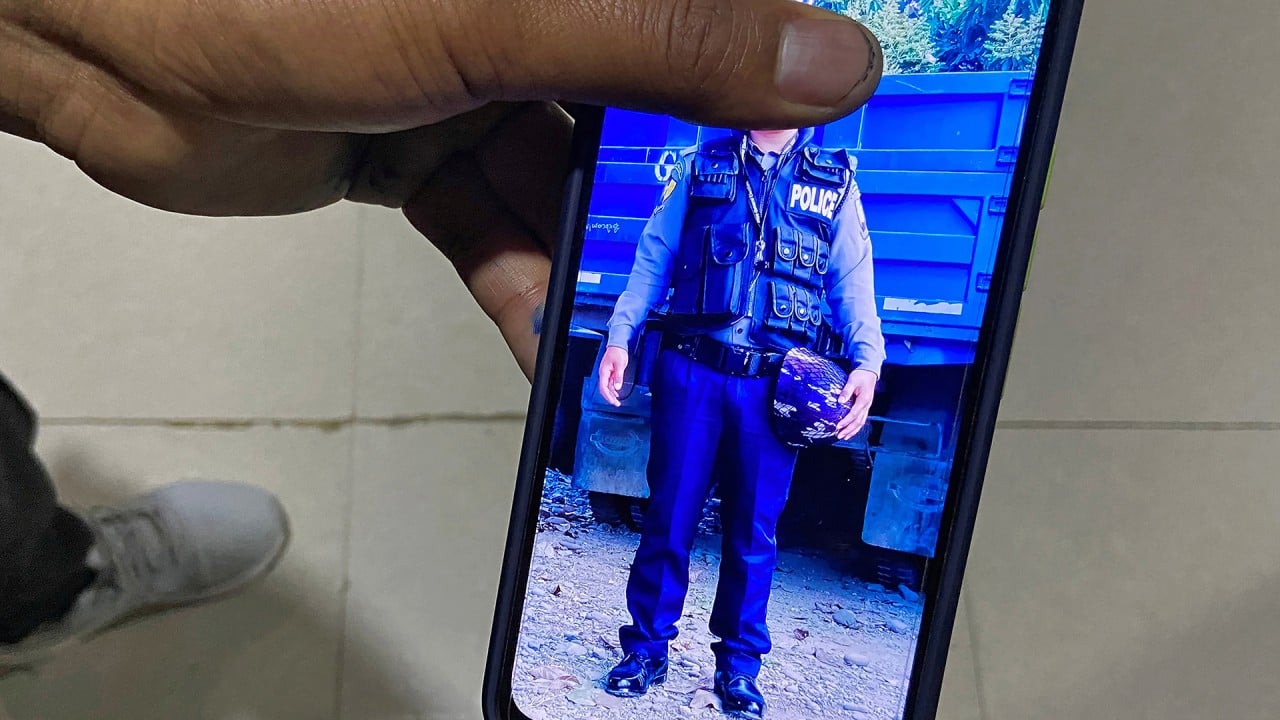
Hong Kong firms face question of ethics with Myanmar investments
- Before the coup that ousted Aung San Suu Kyi, Hong Kong companies had committed US$1.3 billion to the country in a stretch of just seven months
- Hong Kong firms have been linked to two conglomerates used by the junta. Post-coup, only some of those firms have had a rethink
Hong Kong had recently emerged as the Southeast Asian country’s largest source of foreign investment, with businesses committing US$1.3 billion in the first seven months of the financial year 2019/20. In a survey by the Myanmar Hong Kong Chamber of Commerce, 77 per cent of respondents said they planned to maintain their presence in Myanmar over the next year, despite the challenges of Covid-19. Over one-fifth of the respondents, which included more than half of the representatives of the chamber’s 64 member companies, said they hoped to expand.
Keep Myanmar’s ‘hated’ military or face another Iraq: Singapore’s George Yeo
Only a few months later, firms in Hong Kong and elsewhere are facing much thornier, ethical questions than the scope for expansion.

00:57
Myanmar military accuses Aung San Suu Kyi of taking US$600,000 in bribes
But it has not sanctioned Myanmar Economic Corporation (MEC) and Myanmar Economic Holdings Limited (MEHL), conglomerates used by the military to control vast swathes of the country’s economy.
“Doing business with the junta that is brutally massacring peaceful protesters and arbitrarily detaining nearly 2,000 people in relation to the coup is not only morally wrong, but carries serious legal and reputational risk for businesses that have links to the military,” said Yadanar Maung, a spokeswoman for activist group Justice For Myanmar that has pressured businesses to isolate the Tatmadaw.

The HKTDC, which promotes Hong Kong businesses and connects them with opportunities overseas, declined to comment.
The UN report from 2019 also listed names of Hong Kong-based businesses that were linked to MEHL and MEC. While some of them have distanced themselves from the two conglomerates, others have not, according to a review of internal company documents leaked online, publicly available business records and company websites.
Myanmar military urged not to ‘invite’ foreign intervention
For instance, documents including letters and contracts posted online show that VPower Group International Holdings, which operates two liquefied natural gas power stations in Yangon, has done business with MEHL and a government ministry.
CNTIC VPower, a joint venture with China National Technical Import and Export Corporation, has land lease agreements with the Ministry of Electricity and Energy and MEHL, according to the Myanmar Investment Commission documents, which were leaked online by the whistle-blower collective Distributed Denial of Secrets.
In a company press release in November, VPower Group CEO Earnest Cheung hailed the firm’s contribution to the “energy security for millions of households across the country”.
“Our Yangon power plants combined provide a significant contribution to the Myanmar national grid all year round, and is one honour that we are particularly proud of,” Cheung said.
However, a spokeswoman for VPower Group, which is headquartered in Hung Hom, denied the company had dealings with MEHL or MEC.

“The information presented in the document, which appears to be a prescribed form, may not be able to reflect the actual commercial arrangements involved,” she said. “We would like to reiterate that we have no dealing with Myanmar Economic Holdings Limited or Myanmar Economic Corporation.”
Tri-Light Enterprise, a bag manufacturer headquartered in Sha Tin, continues to list a Myanmar factory on its website with an address at an industrial park identified in the UN report as being owned by MEHL. Tri-Light Enterprise did not respond to emailed requests for comment, but a person who answered the company phone number confirmed the firm still operated a factory in the Southeast Asian country.
Myanmar coup: faiths and ethnic groups unite to defy junta
Tristate Holdings and Kaixi Lingerie – which were both linked to industrial parks owned by MEHL in the UN report – did not respond to requests for comment.
Tommy Leung, chairman of Evergain Trading (Garments), said his company terminated its operations in Myanmar in January 2020, several months after his company was named in the UN report for using an industrial park owned by MEHL.
Leung said he had not been aware the site had any link to the military when he first rented it in 2015 and the situation was “not fair to those people who run a factory/manufacturer in Myanmar”.
“To our understanding, very few of them [were connected] to the military coup; at least we were not,” he said.
Saraburi Coal Company, a Thai-owned company registered in Hong Kong, was dissolved in mid-February, weeks after the start of the coup, according to records from the Hong Kong companies register. The firm was named in the UN report as a partner in a joint venture to operate a coal mine and power plant with MEC. Efforts to contact the firm’s Bangkok offices were unsuccessful and it is unclear if its dissolution was connected to events in Myanmar.
Vanessa Chong, a grants specialist with advocacy group Fortify Rights, which is registered in the US and Switzerland, said foreign companies were fooling themselves if they thought they could separate business from politics.

03:16
‘I could not follow those orders’: Myanmar policeman in India after refusing to shoot protesters
“The Singapore government recently reinforced that, and that is a very irresponsible and dangerous thing to do,” she said, referring to comments made last month by Singapore’s Foreign Affairs Minister Vivian Balakrishnan in Parliament, where he said the government would not offer specific advice to businesses on their operations in Myanmar.
Balakrishnan had said there was a need to “maintain the separation between politics and business, and let businesses make commercial decisions, investment decisions on their own merits” but he was sure that companies would be assessing the risks and benefits of remaining in Myanmar.
Speaking at a webinar organised by Bangkok-based Asia Centre on Thursday, Saul Takahashi, a professor at Japan’s Osaka Jogakuin University, criticised Tokyo and Japanese firms for not taking a stronger stand on the coup.
“This conveniently justified Japan’s lack of action.
“As for the Japanese media, their focus is only on the need for stability, so that Japanese businesses can go on their merry little way with making money.”
Chong of Fortify Rights urged governments to “encourage businesses to take a stance that does not actively harm the people of Myanmar, and beyond that, to support the people”.
“At a minimum, governments can assist companies to implement responsible business practices so that their investments are not narrowly focused on financial performance, but also consider positive contributions to Myanmar’s development, at the same time minimising risks and negative impacts,” she said.
Additional reporting by Maria Siow

